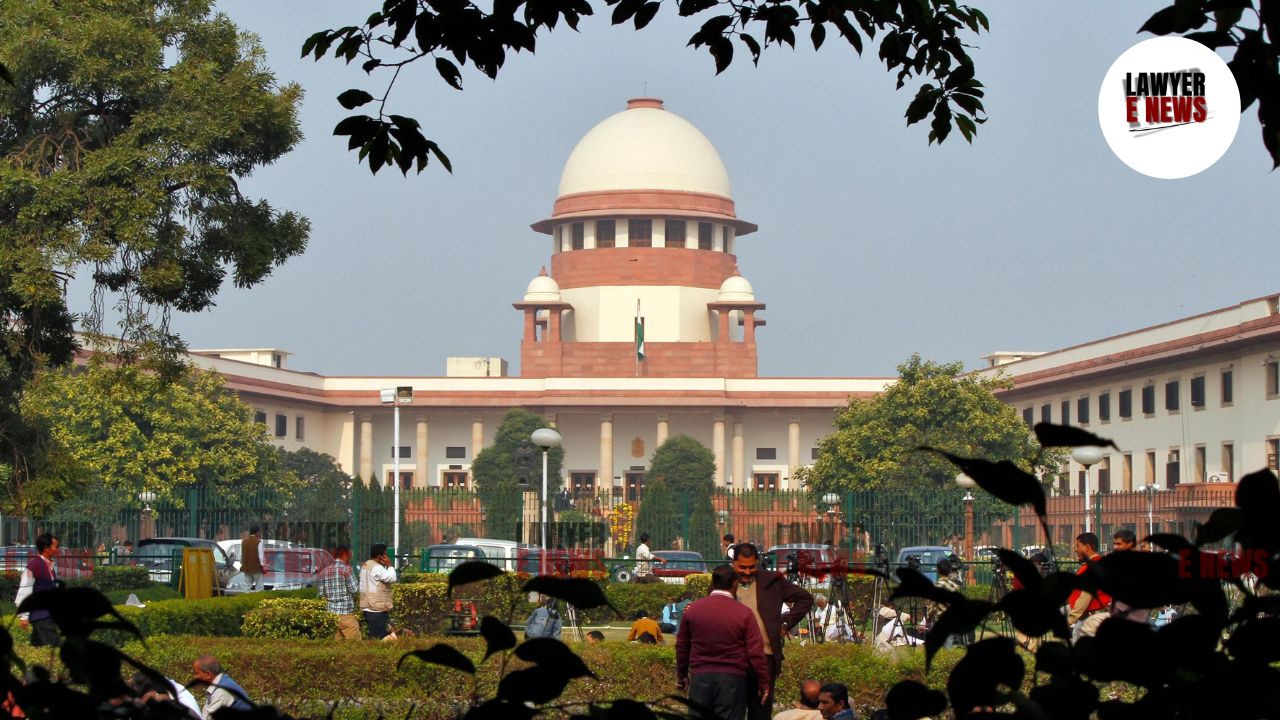-
by Admin
15 February 2026 5:35 AM



Supreme Court of India delivered a landmark judgment in the case of Sukanya Shantha v. Union of India & Ors., addressing the issue of caste-based discrimination in Indian prisons. The Court held that several prison manuals across different states contain provisions that perpetuate caste-based segregation and labor assignments, which violate fundamental rights under Articles 14, 15, 17, 21, and 23 of the Constitution of India. The judgment mandates sweeping reforms in the prison system and strikes down discriminatory provisions as unconstitutional.
"Caste-Based Segregation Has No Place Under the Indian Constitution"
In its scathing indictment of the systemic discrimination prevalent in Indian prisons, the Court stated:
"Segregating prisoners on the basis of caste would reinforce caste differences or animosity that ought to be prevented at the first place. Segregation would not lead to rehabilitation."
The Court rejected the defense of caste-based segregation being necessary to avoid communal clashes, emphasizing that such segregation only perpetuates social hierarchies and discriminatory practices. The judgment firmly concluded that caste could not be used as a basis for the classification or treatment of prisoners.
The petitioner, Sukanya Shantha, a journalist, filed a writ petition challenging the caste-based discriminatory practices in Indian prisons, following her article “From Segregation to Labour, Manu’s Caste Law Governs the Indian Prison System,” which highlighted the caste-based hierarchies in prison labor and management. The petition sought the repeal of discriminatory provisions found in the prison manuals of various states.
The judgment was reserved on July 10, 2024, after hearing arguments from a broad spectrum of stakeholders, including the Union of India, several state governments, and public interest advocates.
Whether caste-based segregation and labor allocation in prisons violate the principles of equality and non-discrimination under Articles 14 and 15 of the Constitution.
Whether such practices amount to a form of untouchability prohibited under Article 17.
Whether forcing prisoners of marginalized castes into menial jobs constitutes "forced labor" under Article 23.
The Court scrutinized provisions from prison manuals across states like Uttar Pradesh, West Bengal, Madhya Pradesh, Tamil Nadu, and Andhra Pradesh, finding multiple instances of explicit and implicit caste-based discrimination. For example, the Uttar Pradesh Jail Manual sanctioned separate duties for prisoners based on their caste, with sweeping and cleaning duties assigned to marginalized castes, while cooking and other "honorable" duties were reserved for higher castes.
“No Social Group is Born as a ‘Scavenger Class’”
"The notion that an occupation is considered as 'degrading or menial' is an aspect of the caste system and untouchability. No social group is born as a 'scavenger class'. They are forced to undertake certain jobs that are considered ‘menial’ based on the notions of birth-based purity and pollution."
This, the Court ruled, was a direct violation of Article 17, which prohibits untouchability in all forms, and Article 23, which prohibits forced labor.
The Court also addressed the problematic classification of "habitual offenders," which disproportionately targeted members of denotified tribes. Several state prison manuals classified denotified tribe members as habitual criminals based on vague and broad criteria, further marginalizing these communities.
"Applying the logic of habitual offenders to entire communities is a continuation of colonial discrimination and cannot be accepted in a constitutional democracy."
The Court struck down the provisions in prison manuals that targeted denotified tribes and directed state governments to revise their definitions in accordance with modern constitutional principles.
In addition to declaring various prison manual provisions unconstitutional, the Court issued wide-ranging directives to both the Union and state governments. These include:
Revision of Prison Manuals: All states and Union Territories must revise their prison manuals within three months to eliminate caste-based discrimination and labor assignment based on caste.
Deletion of Caste References: The caste column in prisoner registers must be removed.
Protection of Denotified Tribes: Police authorities must follow specific guidelines to ensure that members of denotified tribes are not subjected to arbitrary arrest.
Institutional Inspections: District Legal Service Authorities (DLSA) and Boards of Visitors are mandated to regularly inspect prisons and report any instances of discrimination.
Model Prison Manual 2016: The Union Government must update the Model Prison Manual 2016 to explicitly address and prohibit caste-based discrimination in all aspects of prison administration.
"Caste Prejudices Hinder the Growth of One's Personality"
The Court further emphasized that Article 21, which guarantees the right to life and personal liberty, includes the right to overcome caste barriers. Caste-based discrimination in prisons, therefore, violates not only equality and dignity but also hinders personal development and rehabilitation, which are key objectives of the prison system.
This judgment represents a significant step toward addressing the systemic caste-based inequalities that continue to persist in Indian institutions. By categorically striking down caste-based discrimination in prisons, the Supreme Court has reinforced the constitutional mandate of equality, non-discrimination, and human dignity.
Date of Decision: October 3, 2024
Sukanya Shantha v. Union of India & Ors.
